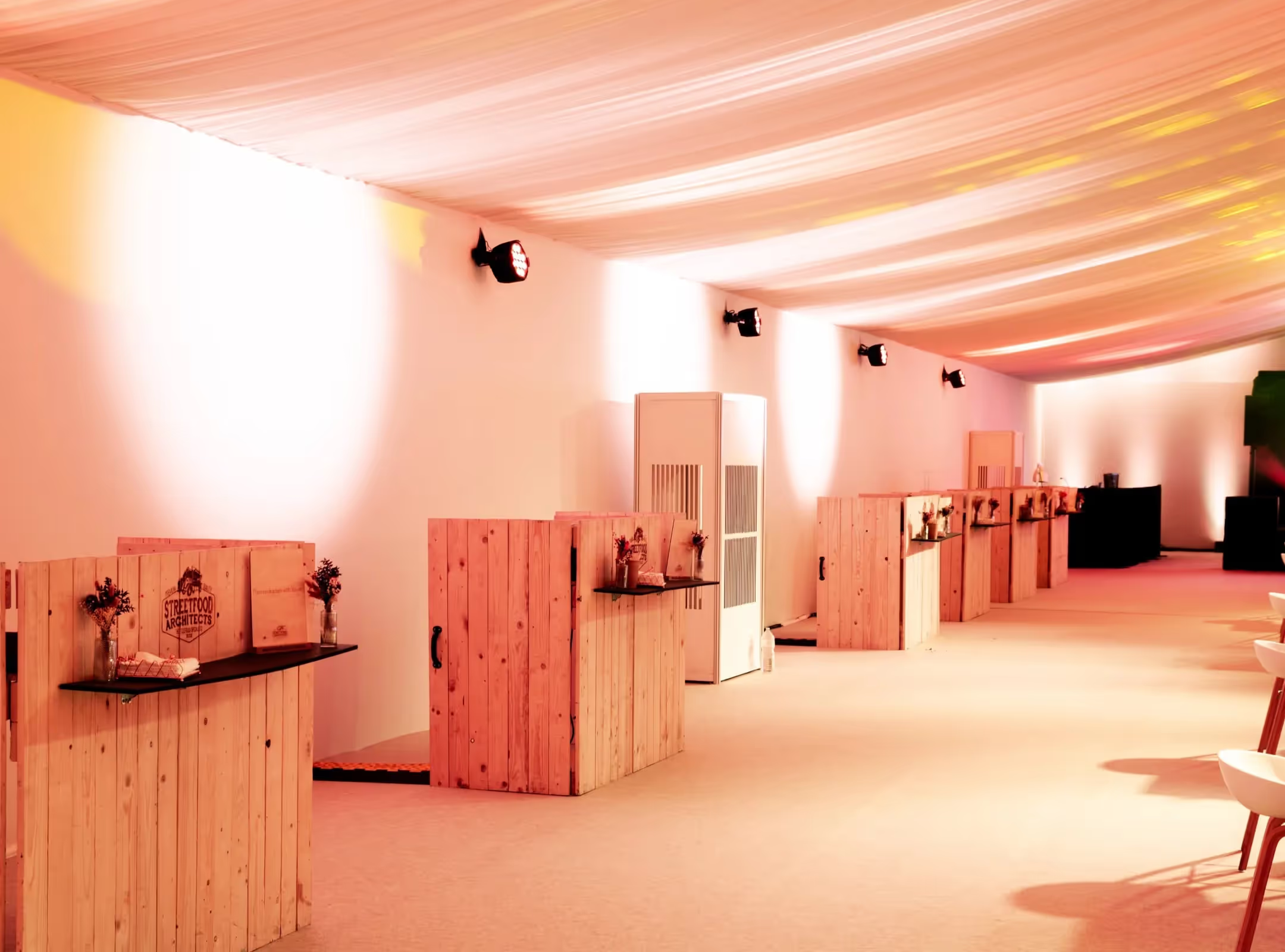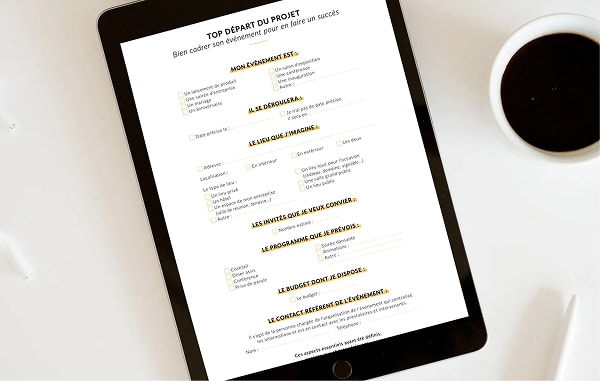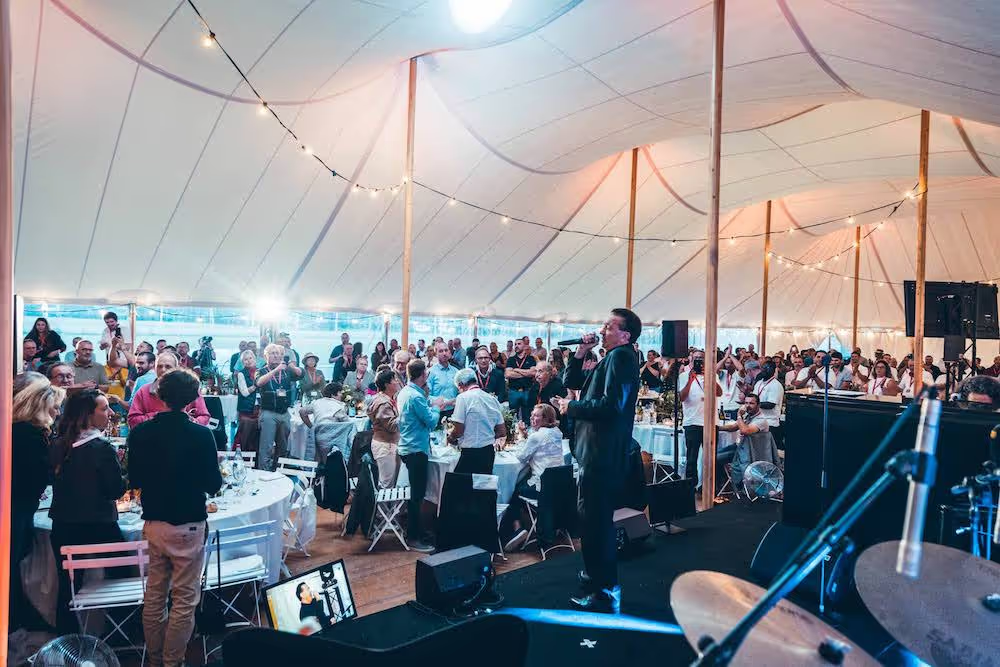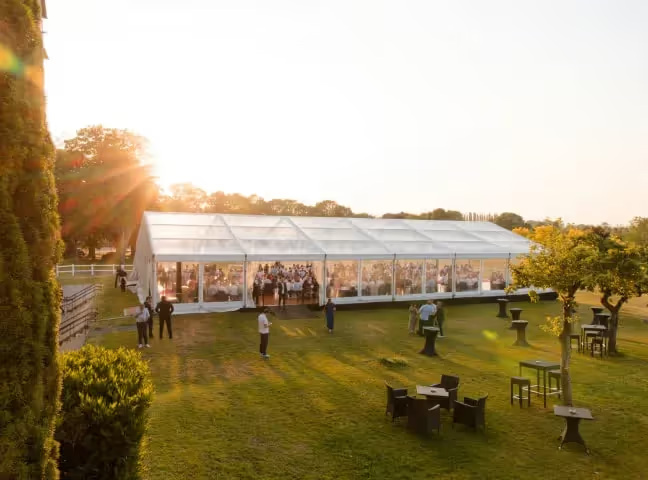Organizing a corporate event requires careful budget planning. Beyond the obvious expenses such as venue rental, catering, and entertainment, numerous hidden costs can impact the final budget. Administrative fees, technical surcharges, logistical contingencies… These additional expenses, often overlooked in the initial estimates, can quickly add up. Here’s a detailed guide to anticipating the hidden cost of a corporate event and better managing your budget by considering the most commonly underestimated expense categories.
1. Frequently Overlooked Administrative Fees
Depending on the event location and nature—whether it’s a seminar, product launch, corporate party, or company anniversary—specific administrative fees may apply. A seminar or conference may require licenses for broadcasting audio or video content. A product launch or corporate party often involves permits for using a public or unconventional space.
Additionally, insurance fees and security deposits can unexpectedly increase costs. These expenses, if not accounted for early on, may significantly impact the budget.
💡 Tip: Research local regulations in advance and check with the venue for any additional charges to integrate these expenses into your budget from the outset.
2. Logistics and Managing Unexpected Costs
Even with careful planning, last-minute adjustments can lead to extra costs. Urgent deliveries of missing materials, extended setup time requiring additional labor, or last-minute changes to the installation can drive up expenses.
💡 Tip: Set aside a budget buffer of 10 to 15% to cover these adjustments and ensure smooth execution without last-minute stress.
3. Costs Related to Electricity, Lighting, and Heating
Depending on the venue and season, electricity, heating, or cooling systems can be significant hidden costs. Some venues charge extra for power supply or impose restrictions on high-energy equipment usage. Stage lighting, LED screens, or outdoor heating units can quickly increase expenses.
💡 Tip: Confirm whether electricity and heating are included in the venue rental, and opt for energy-efficient solutions to minimize consumption.

4. Budgeting for Décor and Space Setup
The visual ambiance of an event plays a crucial role in guest experience. Depending on the event type and objectives, setup and décor requirements can vary significantly, directly impacting costs. For example, a seminar mainly requires a functional and minimalist scenography, with suitable furniture for discussions and presentations. A product launch, however, often demands an immersive setup with lighting, podiums, and demo spaces.
For a corporate party or company anniversary, décor and lighting effects become central elements, creating an engaging and festive atmosphere. Every detail, from floral arrangements to branding elements, should align with the company’s image. These elements contribute to the hidden cost of a corporate event, particularly depending on material choices, installation complexity, and the need for temporary structures.
💡 Tip: Opting for event equipment rentals rather than purchasing allows you to reduce costs while accessing high-quality materials tailored to your event’s needs.

5. Additional Costs for Staff and Service Providers
If an event extends beyond the planned timeframe, overtime costs for technical staff, hostesses, and security teams can impact the budget. Travel and accommodation expenses for speakers or external service providers can also add unexpected costs.
💡 Tip: Clearly define working hours and overtime conditions with providers upfront and negotiate all-inclusive packages to prevent unforeseen expenses.
6. Communication and Ticketing Fees
Managing invitations and registrations can generate additional costs. Using an online ticketing platform or creating a dedicated event website can be an extra expense. Additionally, printing promotional materials, producing branded merchandise, and setting up event signage often represent an underestimated budget item.
💡 Tip: Choose digital invitations and reusable materials to limit expenses and reduce the event’s environmental impact.
7. How to Optimize Your Budget and Avoid Unpleasant Surprises?
Anticipating the hidden cost of a corporate event requires meticulous expense management. Here are some key strategies to optimize your budget:
- Compare multiple quotes for logistics, equipment, and technical services.
- Prioritize package deals from a single provider to reduce additional fees.
- Use budgeting tools to track expenses and avoid overruns.
Proper planning and effective negotiation help control costs without compromising the event experience.
👉 Also read: How Much Does It Cost to Organize a Corporate Event? Complete Guide
8. The Importance of Expert Guidance to Better Manage Costs
Whether it’s a seminar, product launch, or gala dinner, organizing a corporate event requires expertise to avoid budget pitfalls. Partnering with experienced professionals ensures that every expense is optimized while delivering a high-quality experience without unexpected surprises.
The Atawa team offers tailor-made solutions for planning, coordinating, and setting up event infrastructures with optimized cost management.
👉 Need a detailed quote for your corporate event setup and equipment? Contact us for a fully customized solution.
Ile-de-France・Centre-Val de Loire
01 79 75 89 87
Provence-Alpes-Côte d’Azur・Corse
04 84 49 62 64
Nouvelle-Aquitaine
05 35 54 59 88
Hauts-de-France・Normandie
03 74 09 83 62
Bretagne・Pays de la Loire
02 57 64 07 94
Grand-Est・Bourgogne
03 52 74 06 68
Auvergne-Rhône-Alpes
04 28 29 61 35
Occitanie
05 82 95 39 28
Switzerland
+41 076 504 33 02

subtitle
Product name
Discover the Atawa Guide
The Atawa Guide is the new essential tool for organizing your events: from launching your project to bringing it to life, no detail has been overlooked to ensure your event's success.





